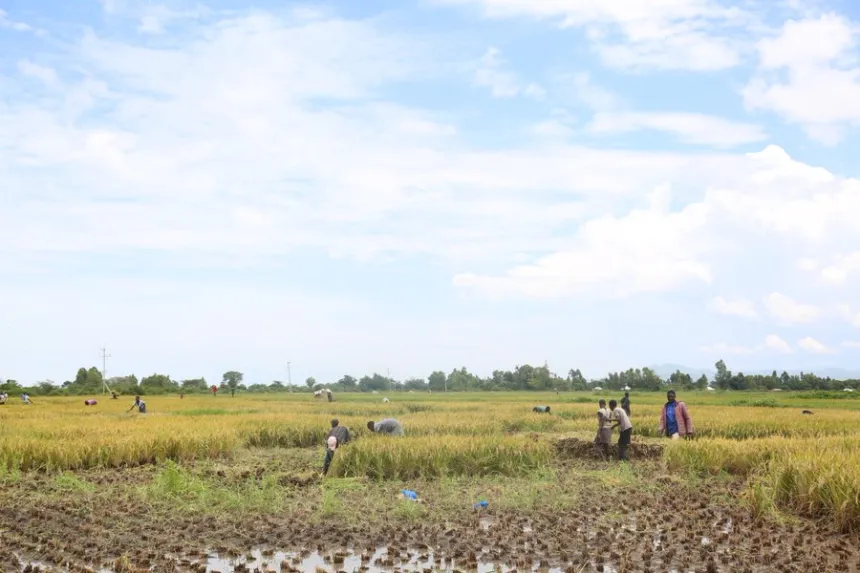The National Irrigation Authority (NIA) has disbursed Ksh 15.2 million to 177 farmers in the Lower Kuja Irrigation Scheme, Nyatike Constituency, as part of an ongoing land compensation program. This marks the second phase of compensation, following an earlier payment of Ksh 17 million to 77 farmers.
This initiative is part of a broader government plan to resolve long-standing land disputes that have hindered the full implementation and expansion of the irrigation project. NIA Chief Executive Officer Charles Muasya emphasized the importance of collaboration among NIA staff, farmers, and the county government to boost productivity and revitalize rice farming in the area.
“Lower Kuja is emerging as a strategic rice production hub,” said Muasya. “We have a vibrant workforce that is working tirelessly to support farmers and improve agricultural yields.” Notably, rice production in Lower Kuja stands at 3.6 tonnes per acre, significantly surpassing the national average of 2.8 tonnes per acre.
NIA Board Chairperson Gilbert Maluki reaffirmed the government’s commitment to fully disburse the allocated Ksh 68 million for land compensation. He stressed that addressing these land issues is critical to unlocking the project’s full potential and ensuring the success of government-led modernization efforts in the irrigation sector.
According to Muasya, NIA is also seeking to raise Ksh 700 million annually for the next three years to complete the remaining infrastructure works in the scheme. He highlighted the urgency of finalizing the project, especially given the increasing need for reliable water sources amid unpredictable weather patterns and prolonged droughts.
To date, a total of Ksh 32 million has been disbursed under the project. Once completed, the Lower Kuja Irrigation Scheme is expected to cover approximately 7,200 hectares and directly benefit more than 19,000 farmers in the region.
The completion of the scheme is poised to significantly boost agricultural productivity, enhance local livelihoods, and improve food security. NIA remains committed to delivering the project efficiently, reinforcing its broader goal of promoting sustainable and transformative agricultural practices in the Lower Kuja region.

